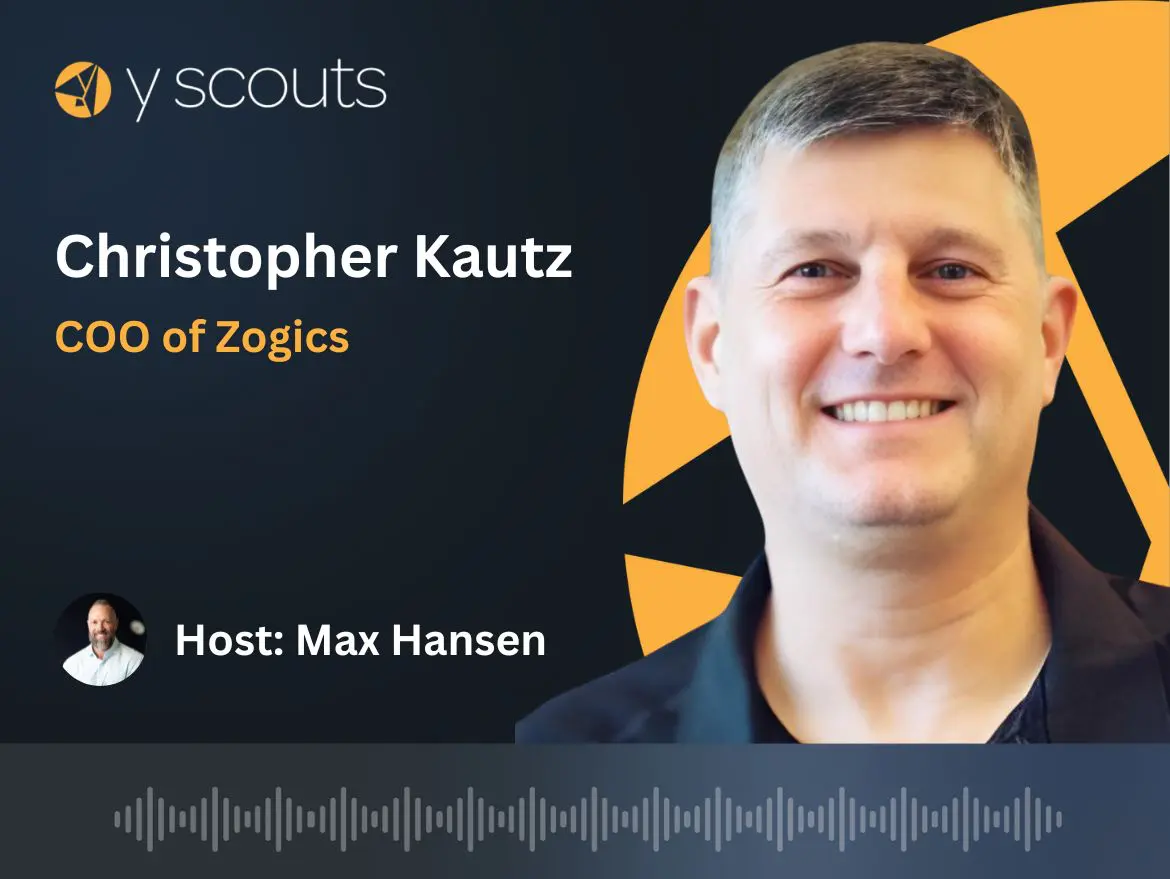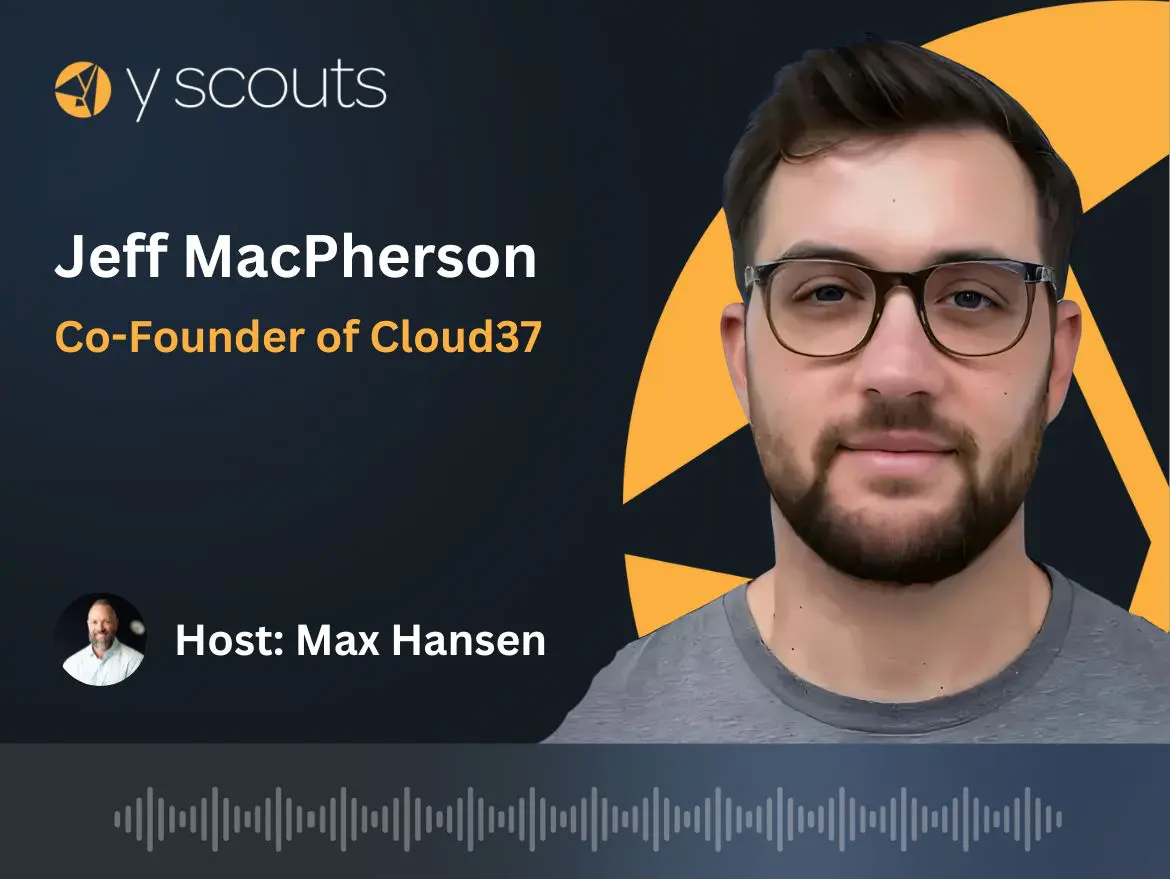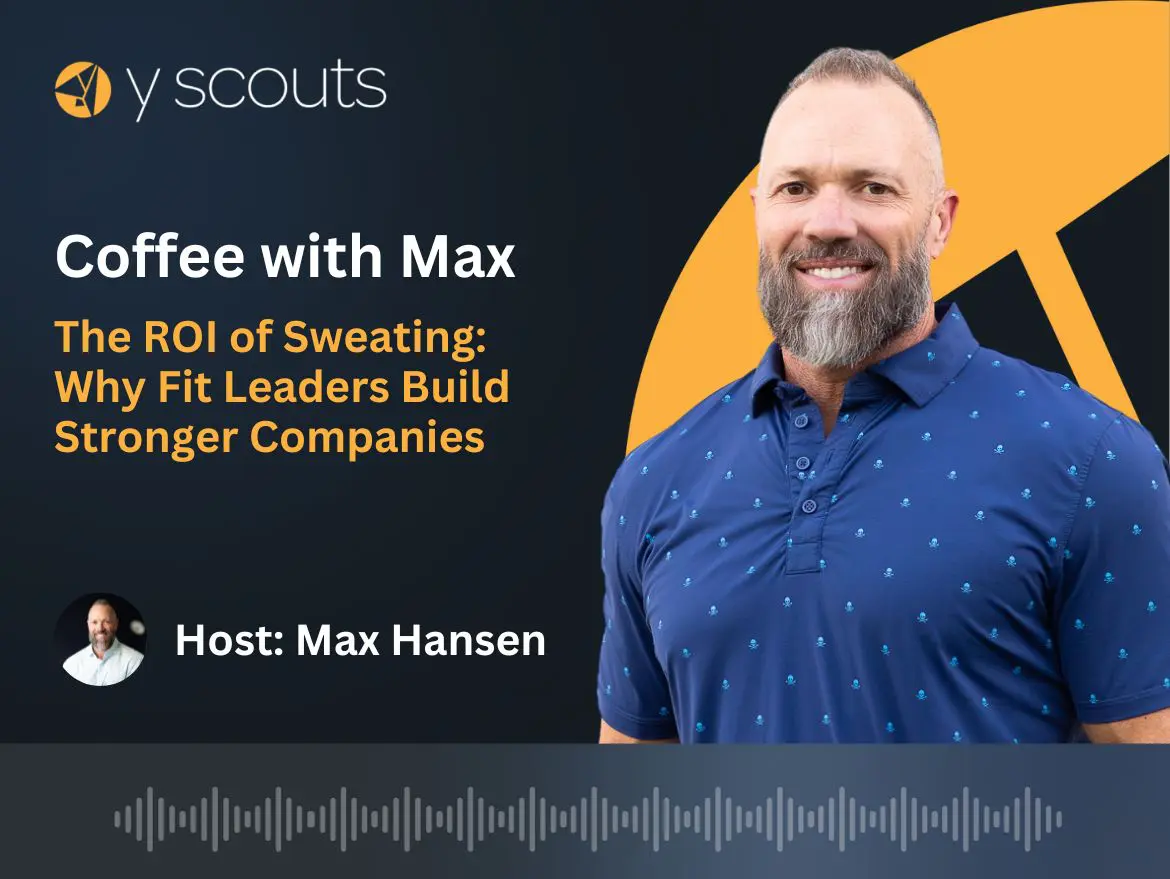Alexander McCobin’s life’s purpose is perfectly aligned to the purpose of Conscious Capitalism – to elevate humanity through business. In this episode, Alexander shares experiences and stories from his life including: his experience joining the wrestling team in 7th grade, his choice to pursue undergrad and graduate degrees in both economics and philosophy, how a simple idea led to a global student movement known as Students for Liberty, meeting his wife and the now hilarious story of the morning of their wedding day, joining Conscious Capitalism as the Co-CEO, the transition to the sole CEO and the elements that make the Conscious Capitalism movement so powerful.
Alexander’s passion for liberty and free enterprise is undeniable. For every business leader out there, get ready to experience the inside story of Alexander McCobin and the rise of Conscious Capitalism.
Table of Contents
ToggleShow Highlights
- 2:04 – How wrestling transformed his life
- 4:39 – The impact of joining debate in high school
- 7:57 – Choosing what path to pursue in college and beyond
- 10.56 – How the passion for liberty began
- 13:02 – Students of Liberty evolves, becomes an international organization
- 14:55 – Everyone is a volunteer, whether they’re an employee or a volunteer
- 17:36 – How he met his wife through Students For Liberty
- 18:11 – Things don’t go as planned on the morning of the wedding
- 24:24 – Alexander explains the Conscious Capitalism organization/ why he joined
- 27:13 – The true meaning behind the words “conscious capitalism”
- 30:00 – The philosophy behind Conscious Capitalism’s mission
- 31:38 – Leaders and organizations who are practicing that mission
- 34:38- CC can be the bridge between business leaders and the millennial audience
- 36:36 – How how to start a chapter
- 40:34 – Alexander’s take on business leaders as moral leaders
- 42:47 – The future of Conscious Capitalism
Show Links
Website: Conscious Capitalism
Alexander’s blog
Students For Liberty
Alexander McCobin Podcast Interview
Share with the listeners the elements or what we refer to as the Tenets of Conscious Capitalism. What is it and what makes up this organization in the movement that it supports?
I absolutely love Conscious Capitalism. To provide a little back story to this, actually, one of the reasons I love this and took this position, what made me willing to leave Students For Liberty for Conscious Capitalism is that, it’s actually an extension of the work I was doing in graduate school when I was specializing in Business Ethics, which I think is really exciting for me personally. But Conscious Capitalism is a way of thinking about business and capitalism that better reflects where we are on the human journey, the human element of of business and capitalism.
The premise is that business should be run on what we call four tenants. First, a higher purpose than just maximizing net income. Second, having stakeholder orientation. Making everyone that a business impact better off than they were before rather than focusing on a single stakeholder group as some people suggests. Third, is conscious leadership. Making sure that the people who run companies are implementing that purpose and stakeholder orientation, not just through their analytic or even emotional intelligence, but also a systems intelligence. Where they’re able to scale that kind of thinking up to large organizations and spiritual intelligence, where they are embodying through themselves in their actions, the principle the company wants to uphold.
Fourthly, a conscious culture, strategy management, structure are all really important, but at the end of the day, the culture a company has, the way that people interact with one another without referencing a strategy and without being managed is what really defines an organization. You want to make sure that you’re creating a culture that respects everyone as human beings and that encourages flourishing pride and joy in people’s work.
I’ve shared the book that was co-authored by both John Mackey and Raj Sisodia with just countless numbers of people. More often than not, as people read it, a common response that I hear from folks is that, “Well, why is this different than just plain capitalism? Why are we putting the word conscious there?” My question for you is, if you had to draw the most striking distinction between just plain old capitalism and conscious capitalism, what’s the most striking distinction you would focus on?
I think the challenge is that very few people agree on what capitalism means right now. A lot of people think that crony capitalism represents capitalism, where businesses are trying to leverage influence in order to benefit themselves. Or they think that short term thinking or perhaps, can I say on here capitalism? Better it is what capitalism is all about. Trying to just make as much money as possible in the shortest period of time at the expense of others any way that you can.
Conscious capitalism brings a different perspective to what capitalism can be instead of saying what capitalism is. It can be this way of approaching business and economic activity in a way that respects the human dignity and element to everything that we’re doing. If we approach capitalism with that perspective, we’re able to unleash its potential to elevate humanity and accomplish more than were even able to conceive of right.
That description reminds me of one of the evolutionary stages of the concept of management. I think it was in the early 1940s or so. There was a Harvard professor by the name of Elton Mayo. He brought to the forefront a concept that became known as the human relations movement. It was one of the first times that anyone from academia was arguing that the emotional factors and what employees, how they feel about the work can outweigh the logical requirements of the job and that the role of management needs to be given to, much more emphasize or at least hold at a level of parity those emotional requirements and the experience of people in the work at a level equal to the requirements or what the competency’s required to do the work in the output that the work produces.
It’s fascinating to me that in typical form, what’s old is new again and it’s not that new. It’s just called something different but these are concepts that are not– This isn’t necessarily revolutionary. I don’t mean that as a disrespectful comment whatsoever. It’s that, this is a need. That comment you made around the human journey that, as we continue to evolve as the human race, that what our expectations are of what’s possible simply continues to grow as we grow as people.
That’s absolutely right. Most people forget that Adam Smith, the author of The Wealth of Nations, who is considered one of the founders of capitalism, was a moral philosopher before he was an economist.
His book, The Theory of Moral Sentiments, is a fascinating study of human morality and emotions. He saw capitalism and economics as an extension of that. But we have forgotten that over the last couple hundred years. Conscious Capitalism, to a certain extent, is going back to those original roots of integrating a moral perspective with economics and business that I think a lot of people have known for a while. There certainly have been conscious capitalists before there was a name to that as well.
This philosophy is able to provide a vocabulary, a set of tools to individuals who have acted in this manner before. It’s an opportunity for us to teach more people how to do business in a better way, both morally better and I think, something that will actually lead to greater long-term results for companies and individuals. This is meant to be a way for businesses to become more productive and for more people to benefit from this.
Give our listeners a sense of the types of leaders or types of organizations who are in support of or actively are practicing and continuing to learn the four tenets and put them into practice.
There are a number of companies that have been involved with conscious capitalism from the beginning that we like a highlight, such as, Whole Foods, the co-founder and CEO John Mackey is one of the founders of Conscious Capitalism and attributes a lot of Whole Foods success to this philosophy. We also have The Container Store involved from the early days. Kip Tindell, one of the founders and former CEO there is one of our biggest advocates. There are more companies are joining the organization and leaders getting involved, really every week at this point.
In a couple of months, we’re going to hold our 11th annual CEO summit in Austin, Texas. We have some amazing speakers coming out like Ron Shaich from Panera Bread, talking about the way that you’re able to think about business in a different manner with this. We’re going to have Tom Gardner, from the Motley Fool, Frederic Laloux the author of the book Reinventing Organizations and Shallow Lockman, the founder of Clif Bars back in the day and now the CEO of Rebbl Drinks.
They’re all individuals who may take slightly different approaches to their businesses and what they think is the purpose of their individual business, but have that common commitment to business as a force for good and a better way of doing business, than what is typically described, either in mainstream theories of business or in the media.
It’s interesting, the names that you just rattled off, most of us know them quite well. If I hold an image in my mind of those individuals, again, no disrespect them, they are not part of the millennial generation as far as I can tell. Much has been made about the millennials and Gen Z and these younger generations, that have a very different set of expectations as they enter the workforce and continue to gain more influence in the workforce and rise to more leadership roles.
But these individuals that you just shared and their organizations, these are not young start-ups, these are not 21-year-old founders of some tech company. These are people that have taken a lap or two around the track and have figured out that, whether they did business in a way different than they do now, that the Conscious Capitalism model is a model that does lead to a better outcome.
To me, it flies in the face of this notion that you can’t teach an old dog new tricks. I’m just curious to gain your perspective on the composition and again being so much made about the Gen Z and millennial impact, that the names you rattled off are not necessarily representative of that group. These are people that have been around the track once or twice.
There’s nothing wrong with that, right [laughs]? These are people who have done some great things and have a lot to teach the next generation of business leaders. One of the roles I see for Conscious Capitalism going forward, is to be that bridge between the seasoned veterans and people who have this wealth of wisdom and experience and the up-and-comers who are going to continue to carry that torch for doing business better and can learn and are going to keep this going.
But at the same time, I think you’re absolutely right. Millennials Gen Z are more naturally inclined towards Conscious Capitalism perhaps than previous generations. It’s their natural inclination, it’s the way they were brought up. A lot of the businesses coming out of those generations are aligned with this philosophy. We’ve had speakers like Alejandro Nikhil from Back To The Roots or Mickey and Radha Agrawal. Mickey who’s even on Conscious Capitalism’s board of directors that are great representatives of the next generation of business leaders taking this philosophy and really building upon it, which I think is incredibly exciting in part also because I’m from the millennium generation as well.
It’s absolutely an exciting time. No question about it. The movement itself is, in my opinion, that the strength of the movement is due in large part to the chapter network and the chapter community that has been started quite grassroots organically. Probably in many ways very similar to the experiences you had with Students For Liberty. How many chapters exist today and just a little maybe insight into what does it take to start a chapter if we have listeners out there that are interested in exploring this further?
What’s amazing about the chapter program at Conscious Capitalism is that it’s not only grass roots. It was conceptualized by supporters of Conscious Capitalism. I believe the story is that six years ago someone in Australia emailed Conscious Capitalism saying that they loved the philosophy. They wanted to bring it to Australia. They wanted to start a chapter and would we mind if they used the name? The logic from our side was, “Well, they’re halfway across the world. How much harm could they do?” [laughter]
From there, this incredible program began to blossom so that we now have 38 chapters in 14 countries around the globe with another 20 being developed at the moment.
We’re developing more structure and more resources to basically help business leaders in different communities plant a flag, bring like-minded business leaders together to share their experiences, develop friendships and relationships that may not have otherwise happened and really just spread the message of how to do business in a better way. For anyone who is interested in starting a chapter or getting involved, I would encourage them to go to our website consciouscapitalism.org and click on the chapter tab to see if one exists in their area or to offer to start one up themselves.
For more episodes of the Built On Purpose Podcast, visit yscouts.com/podcast.
Y Scouts, a leadership search firm, finds purpose-aligned as well as performance-proven leaders to help organizations achieve their missions faster. Ready to supercharge your leadership search and get the right person in your organization? Contact Y Scouts.






